
Delhi
USFDA Approved Procedures
Minimally invasive. Minimal pain*.
Insurance Paperwork Support
1 Day Procedure

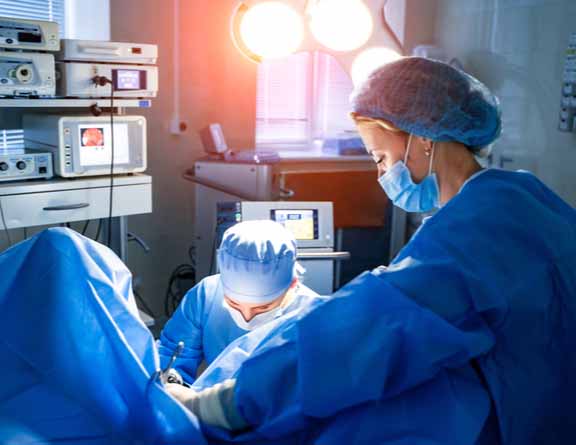
Stages of Blastocyst Development
Two distinct cell types are seen in the blastocyst: the inner cell mass, which develops into the foetus, and the outer layer of cells, known as trophectoderm, which develops into the placenta.
Transferring embryos after IVF or ICSI has traditionally been done on the second or third day after egg collection. However, in modern times, we can now culture embryos for five or six days owing to the advancements in the IVF lab. Before day five or six, some embryos stop developing (arrest). The embryologist, therefore, uses natural selection to select the best embryo for embryo transfer.
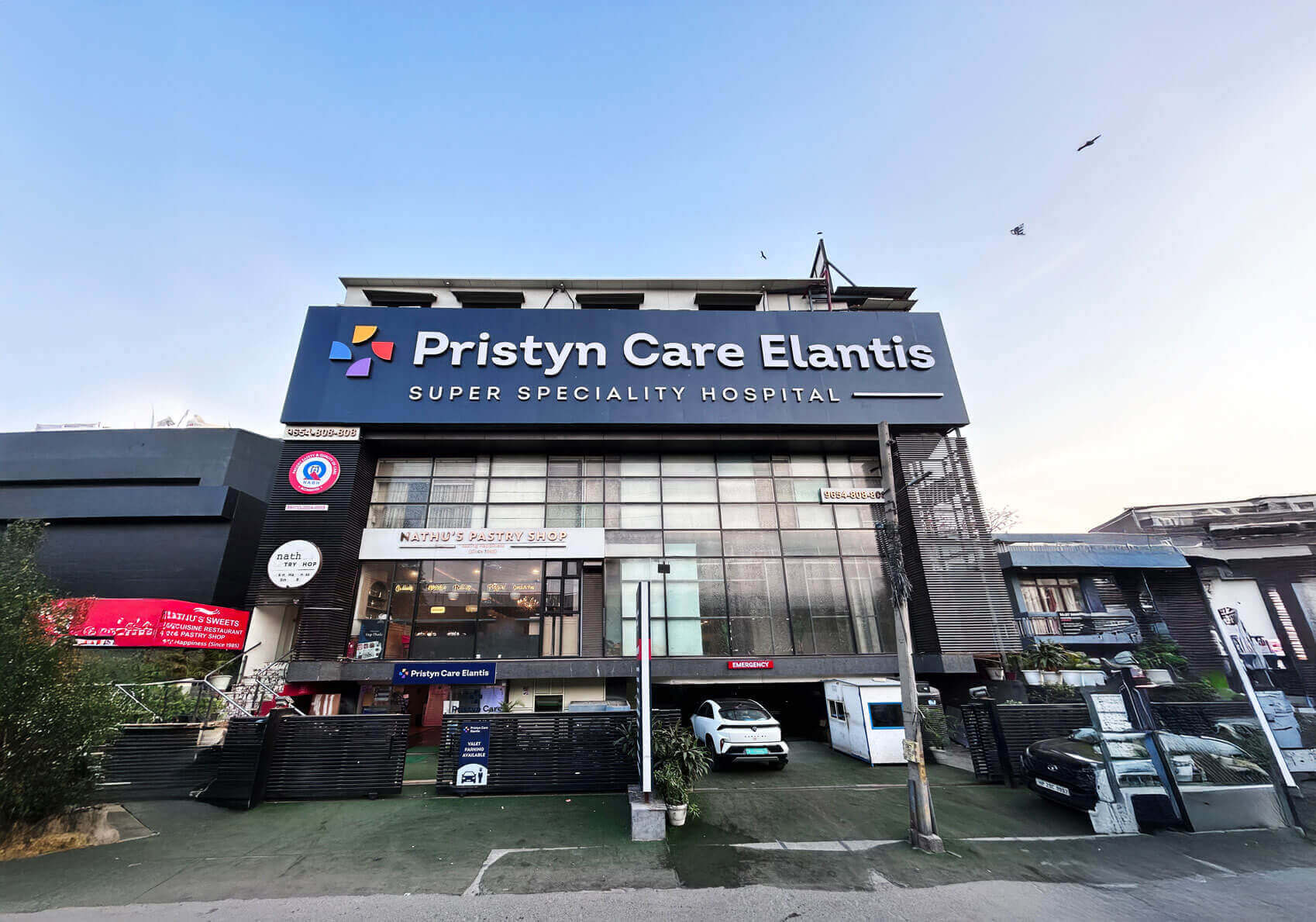

 NABH
NABH
Pristyn Care Elantis is dedicated to revolutionising surgical care. We combine the latest medical technology with highly skilled professionals and a patient-centric approach to transform the healthcare experience. Our team of doctors at Pristyn Care Elantis, strives to simplify the entire patient journey, ensuring a seamless process from diagnosis through recovery.
We offer specialised treatments across a wide range of medical fields, including proctology, laparoscopic surgery, ENT (ear, nose, and throat), vascular, gynaecology, urology, aesthetics, orthopaedics, ophthalmology, and weight loss solutions.
The Suites & Rooms at Pristyn Care Elantis are designed with your comfort in mind, offering a welcoming ambiance and top-notch amenities to make your stay as pleasant as possible.
Our highly skilled medical team, supported by advanced infrastructure, makes us a trusted choice for comprehensive healthcare solutions.
...Read More
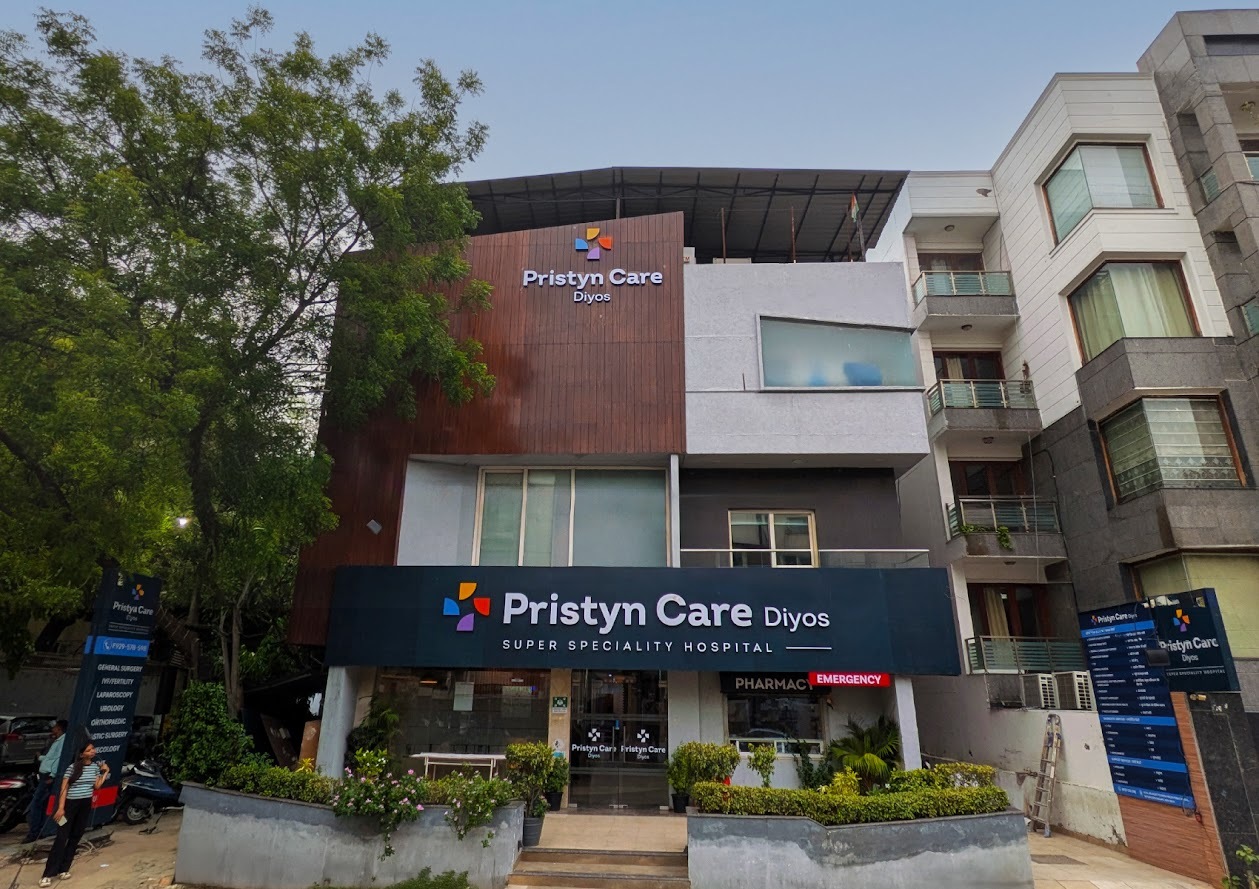


 NABH
NABH
Pristyn Care Diyos Super-Speciality Hospital is committed to redefining modern healthcare by blending cutting-edge technology with compassionate, patient-first care. Located in the heart of Safdarjung Enclave, South Delhi, our NABH-accredited facility offers advanced treatment solutions across multiple specialties, ensuring superior outcomes and faster recoveries.
Our dedicated team of doctors at Pristyn Care Diyos Hospital aims to streamline the entire patient journey—from consultation to recovery—by providing seamless, end-to-end medical care tailored to each individual’s needs.
We offer specialised medical services across a wide range of fields, including urology and andrology, general and laparoscopic surgery, cosmetic and plastic surgery, gynaecology and urogynaecology, orthopaedics, neuro and spine surgery, ENT (ear, nose, and throat), oncology, internal medicine, and critical care. Our facility also extends home care services for enhanced convenience and continuity of care.
The suites and patient rooms at the Hospital are thoughtfully designed to ensure a comfortable and healing environment, featuring modern amenities, hygienic surroundings, and attentive support for both patients and their attendants.
Supported by a skilled clinical team and world-class infrastructure—including modular operation theatres with HEPA filters, advanced diagnostic labs, and high-end medical equipment— Pristyn Care Diyos Hospital stands as a trusted destination for safe, effective, and personalised healthcare.
...Read More
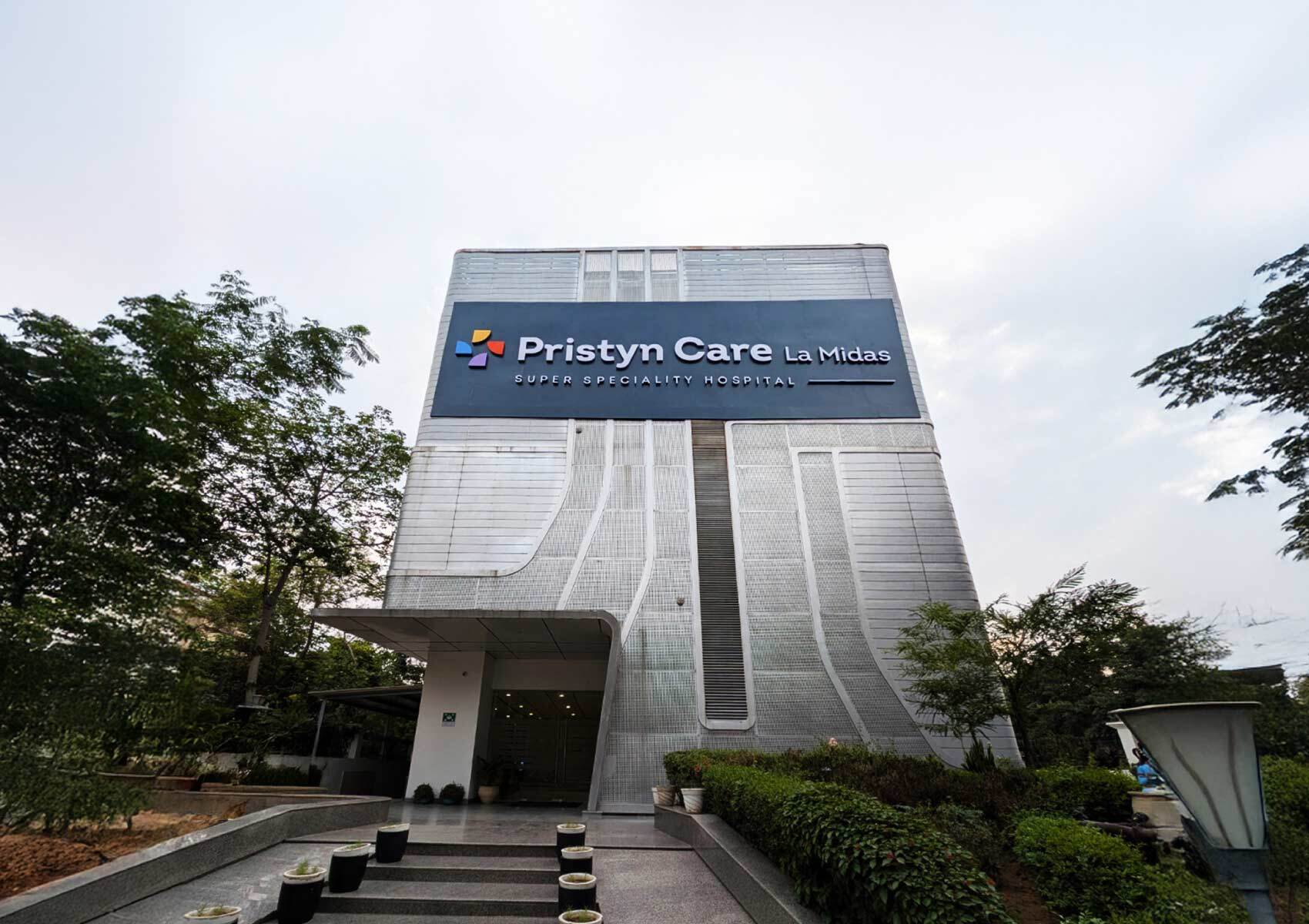


Pristyn Care La Midas is an award-winning, internationally recognised Super Specialty Hospital located in Gurugram, Haryana. We are dedicated to delivering the highest quality aesthetic services, combining advanced medical technology with a compassionate, patient-first approach.
Our state-of-the-art facility offers a comprehensive range of surgical and non-surgical treatments for skin, hair, and body, all at affordable prices. We specialise in services such as laser hair removal, skin rejuvenation, body contouring, and hair restoration, ensuring that each patient receives personalised care tailored to their unique needs.
At Pristyn Care La Midas Hospital, we prioritise patient comfort and satisfaction throughout the treatment journey. Our experienced team of medical professionals is committed to helping you achieve your beauty and wellness goals in the most natural and effective ways possible.
Experience the perfect blend of luxury and innovation at Pristyn Care La Midas Hospital, where your well-being is our top priority.
...Read More
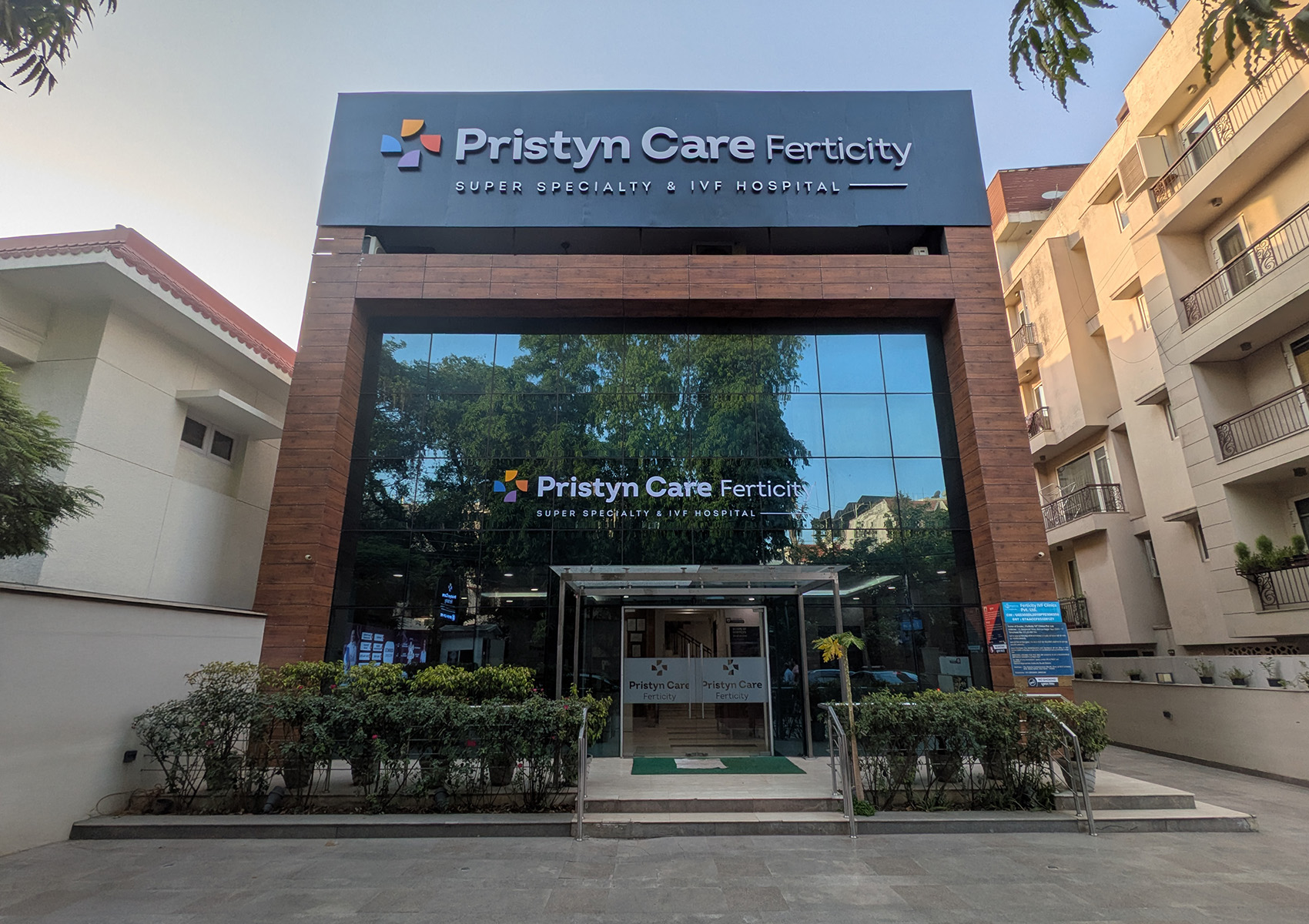


Located in South Delhi, our facility is spacious, serene, and designed to make couples feel comfortable throughout their treatment. We pride ourselves on a warm, clean environment, offering easy access and convenient parking.
With a reputation built on the strength of our experienced clinical team, we specialise in customised treatment protocols and provide comprehensive care, from the initial consultation to treatment completion. Pristyn Care Ferticity Super Specialty & IVF Hospital has helped over 40,000 families worldwide realise their dream of parenthood, maintaining the highest success rates in the field.
Our clinic ensures a partnership between patients, doctors, and staff, delivering compassionate care every step of the way.
...Read More
Delivering Seamless Surgical Experience in India
Your safety is taken care of by thermal screening, social distancing, sanitized clinics and hospital rooms, sterilized surgical equipment and mandatory PPE kits during surgery.
A dedicated Care Coordinator assists you throughout the surgery journey from insurance paperwork, to free commute from home to hospital & back and admission-discharge process at the hospital.
Our surgeons spend a lot of time with you to diagnose your condition. You are assisted in all pre-surgery medical diagnostics. We offer advanced laser and laparoscopic surgical treatment. Our procedures are USFDA approved.
We offer free follow-up consultations and instructions including dietary tips as well as exercises to every patient to ensure they have a smooth recovery to their daily routines.
The blastocyte culture cost varies significantly from region to region. The cost is usually an additional charge on the standard IVF procedures, and embryo transfer cost. Also, factors including the hospital’s reputation and precise location in Delhi, the specific technology used, overall IVF package cost are the deciding factors, too.
The embryologist can choose the healthiest embryos through blastocyst culture IVF, which raises the likelihood of pregnancy. The embryos must be cultured in a laboratory until they reach the blastocyst stage before being placed in the uterus.
Three blastocyst implantation stages, include, apposition, adhesion, and implantation . For better understanding, read them above.
In a day-5, IVF blastocyst transfer, the implantation procedure usually begins 1-2 days post-transfer as the embryo hatches and attaches to the uterine lining. The implantation can take around 5 days to complete.
Embryo biopsy is advised during the blastocyst development stage rather than on Day 2 or Day 3 embryos, making blastocyst culture necessary.
Blastocyst culture is advised for:
The blastocyst culture is preferred in the following cases:-
Apposition
It is the initial unstable position of the blastocyte close to the endometrial epithelium, usually in the fundal or posterior portion of the uterus. The inner cell mass (ICM) of the blastocyst aligns itself with the uterine surface at this phase. Through weak electrostatic and biochemical interactions mediated by microvilli, the embryo is able to explore the endometrial surface before forming a strong connection.
Adhesion
The blastocyst adheres to the luminal epithelium in a steady manner after apposition. Cell adhesion molecules like integrins, selectins, and cadherins establish a strong connection between trophoblastic cells and endometrial epithelial cells, facilitating this phase. In turn, the endometrium needs to be in a receptive state, which is sometimes referred to as the window of implantation and is controlled by the oestrogen and progesterone hormones.
Invasion
The trophoblast develops into two separate layers after adhering firmly:
The syncytiotrophoblast penetrates the stromal tissue beneath the uterine epithelium. In order to enable early uteroplacental circulation, this phase entails significant remodelling of the maternal extracellular matrix and vascular. Immune modulation systems and proteolytic enzymes enable this controlled invasion, ensuring the semi-allogeneic embryo’s tolerance.